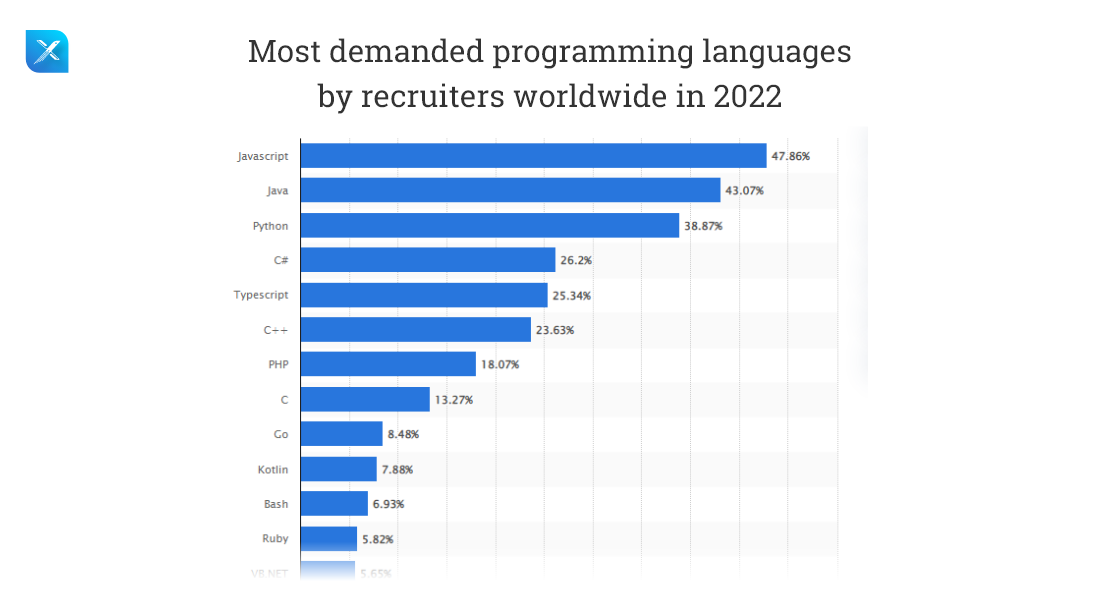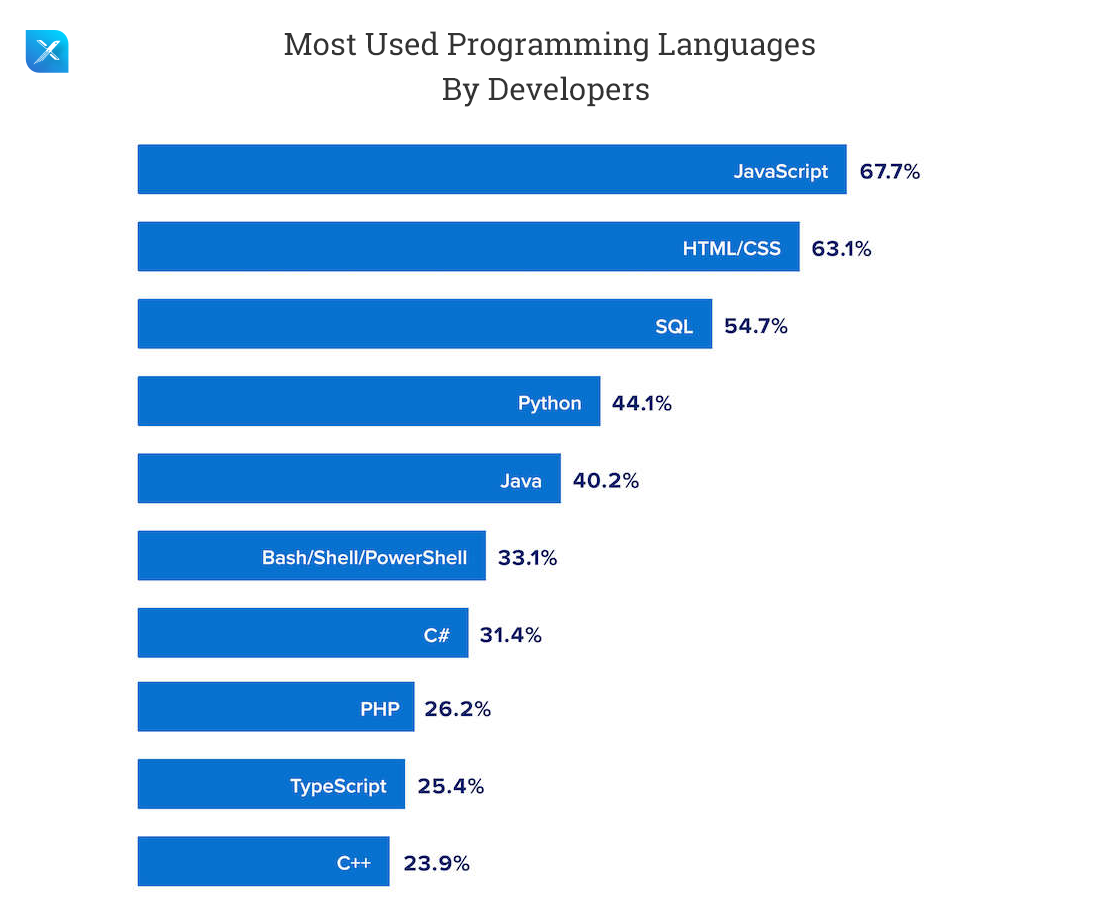AI Development for Enterprises: Cost,...
July 3, 2025

The days of financial companies keeping account books to keep track of all transactions are long gone. Digital technology has supplanted traditional working practices as the banking sector has developed.
The major objective is to match consumer expectations in the fast-paced technological era while also lowering the cost of expenses associated with performing daily tasks manually. Java is the most widely used programming language in the banking sector.
Over the years, banks and financial institutions have utilized Java extensively for software development. Java offers a safe and secure framework for developing websites and applications for the FinTech sector, redefining how data should be stored and method architecture. In the Big Data ecosystem, Java’s object-oriented programming language has become extremely important. Due to the daily handling of significant amounts of data by finance companies, Java is able to manage these enormous amounts of data with total security.
Most of Java development companies receive requests for Java programming language for their projects. Let’s check out some statistics for Java.
According to a Statista report, Java is the second most preferred language by recruiters worldwide in 2022.

According to overstack flow, Java is the 4th most popular language preferred by developers around the world.

For a long time, Java has dominated the list of the top programming languages. Such fame did not appear overnight. It has logical underpinnings, which have been demonstrated through years of involvement in several fintech projects.
Java is dependable, safe, and flexible. Modularity and code reuse makes difficult problems simple to address thanks to the object-oriented structure of the system. Java has a variety of capabilities that make creating code easy and simple. For instance,
Aside from the aforementioned, Java code excels due to its dependability and safety. The self-contained nature of Java objects, which do not require outside references, explains it. You can hire a Java development company to get your project done under your budget.
Java enables the development of FinTech apps with strong architecture, clean code, and excellent unit testing coverage. Additionally, it is a trustworthy and predictable option for a consistent FinTech SaaS architecture. Java offers a solid and reliable development template that makes it simple for developers to handle any problems in the future.
In the end, Java can reduce operating expenses and simplify the operation, upkeep, and expansion of SaaS services. Java is the ideal choice because the majority of FinTech applications need robust data management technologies. Java should be your first choice if you intend to develop a data-intensive financial project supported by AI technology or machine learning. Java development environment is the first choice for FinTech industries due to various reasons.
It Is An Established Option For The Financial Sector
Java has been the top platform for creating financial software for a few decades. When it comes to conventional banking software, which depends on Java’s object-oriented models and top-notch, security features, it is still the dominant language. The FinTech industry is increasing quickly, and more than $50 billion is invested in FinTech businesses each year. Java is now covering another area of banking software. This comes as no surprise given all the compelling and established benefits of Java, which are projected to keep it at the forefront of FinTech project development.
Chatbots Development
Java has established itself in the financial services industry, where accounting and records are the key characteristics. Chatbot solutions are being used by an increasing number of financial businesses to lower costs and improve the digital experiences of tech-savvy customers. For instance, modern chatbots with advanced capabilities can access client information like their CIBIL score, loan repayment history, number of credit cards currently held, spending patterns, and more to provide better customer service. How are these sophisticated chatbots created? Java and its libraries are useful in this situation! Because it enables scalability, accessibility, manageability, debugging, visualization, and so much more in critical projects, Java is the greatest tool for chatbot development.
Versatility
Java is an extremely adaptable language utilized in projects linked to fintech development. It performs effectively for high-load systems like cloud computing, blockchain, IoT, AI, and machine learning. Java-based Android apps continue to rule the mobile development world. Desktop programs can keep up with them. They effectively utilize JavaFX, a feature-rich framework for creating sophisticated client applications. Through Java development services you can gain the advantage of versatility in your projects.
Multitasking
Java is a programming language as well as many other development tools. One may categorize Java as a contemporary software platform. It provides a well-liked virtual machine that accommodates numerous contemporary languages. Some of them added programming languages and Null security to Java, including Scala, Groovy, and Kotlin.
Arrangement of the Documents
The comprehensive and very well-organized official Java documentation is really good. The Java Development Kit includes a tool called Javadoc that converts Java source code into Code snippets documentation. This is open-sourced, hence can be used freely. You can start the development process now.
Corporate Assistance and Continual Updates
Every six months, Oracle upgrades Java, updating and upgrading it to be current with the newest technologies. It ensures that the language is always current with any new security flaws or hacker-developed attacks. In actuality, corporate help is available to all clients. Opting for Java development services could be helpful for your Fintech industry at a large scale.
Update Applications Cheaper and Easily
To reduce hardware expenses, the banking industry is fast implementing cloud-based solutions. A server-side programming language called Java makes the transition to cloud computing possible. During the development stage, Java developers simply need to concentrate on code release and making sure the relevant unit tests are passed.
Security and Dependability
In the banking industry, bulletproof encryption is a need that cannot be compromised. Java seems to satisfy this requirement with its built-in security features like Java Virtual Machine and runtime restrictions. Security and large-scale data processing are also features of the Java design. Java has a big edge over competing technologies since it can run on any gadget. Because of this, the majority of developers that work on data-intensive projects, such as those for Fintech businesses, prefer it.
Java has a track record of success when creating finance apps. However, modern developers are always looking to optimize their tasks. Because of this, a project built in Java is frequently entirely Java-based. The team may decide to use different languages and tools for the best results. We’ll then examine Java’s most well-known rivals and their distinguishing qualities.
Java vs. Kotlin
A strongly typed programming language called Kotlin is compiled in JavaScript and operates on top of the JVM. The creators wanted to produce a language that was both easier to learn and more compact than Java, which is also type-safe. Simplicity has improved IDE support and has led to faster compilation, among other things.
Whether Kotlin can take the place of Java has recently been a hot topic of discussion. Such worldwide changes are still a ways off, in our opinion. Kotlin code is shorter and simpler to read, but it lacks Java in terms of tool availability and variety.
Java enables you to construct your own API methods, build websites, servers, and mobile apps, and do a wide range of other tasks. Kotlin is a new term in Android programming, in turn. Its main advantage is a new perspective on things and a desire to give developers straightforward, practical tools that don’t require a lot of coding.
Most prominently Kotlin for Android and Java for the backend is preferred by developers. We most frequently integrate these languages in this same manner in our financial projects.
Java vs. Python
Python is a rigorous dynamic typing, rising, particle, object-oriented language. High bandwidth structures, along with code examples and flexible linking, make it desirable for quick program development.
Compared to Java, Python is simpler, shorter, and simpler to learn. Despite all of this, Java is still the most popular platform for business applications.
Many specialized libraries. Despite the fact that Python also has a vast library base, Java libraries are better suited for complex applications.
Java offers type safety that detects all potential mistakes at compile-time rather than run-time like Python because it is a statically typed language.
readable code. Other programmers can read and edit Java code more easily because Java developers explicitly declare variable types. The fact that vast teams of various specialists work on fintech initiatives implies a lot.
Financial institutions such as banks cannot afford any mistakes. Their program comes with harsh consequences for poor work, and there are hardly any rewards for excellent work.
Java has a sizable community and excellent corporate support. It also contains robust security features and top-notch open-source FinTech libraries. One of Java’s most coveted advantages for FinTech organizations is portability. By hiring a java development company you can get your Fintech app in no time.